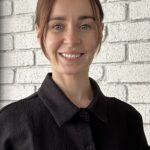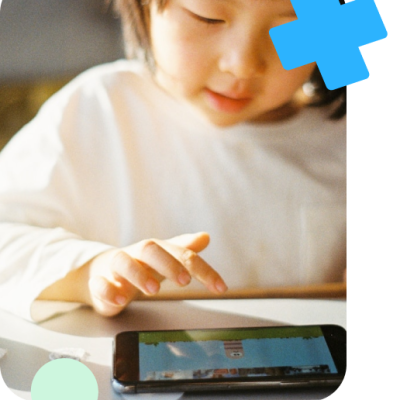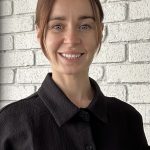

Your complete guide to understanding and preparing for the NSW Selective School Test 2026.

Author
Robyn Oliver
Published
November 2025


Key Takeaways
Test Breakdown: The Selective School Test includes Reading, Mathematical Reasoning, Thinking Skills, and Writing — each worth 25% of the final score.
Key Dates: The 2026 NSW Selective School Test will take place on the 1st and 2nd of May 2026.
Preparation Tips: Focus on consistent, balanced study habits over intensive coaching; use official NSW practice resources to build confidence and readiness.
Table of contents
The NSW Selective High School Placement Test is an optional test taken by children in Year 6 government schools who wish to attend an academically selective government high school within New South Wales. Academically selective means not everyone will be eligible to attend, and the schools will generally take the students with the highest marks.
The NWS Selective Schools Test is an online test, taken in an external test center. The test is broken down into four subject areas:
Each test is worth 25% of the final grade.
The NSW Selective School Test is usually held in May over two days. Students are allocated a date to attend the test center. The Selective School Test 2026 test dates have been confirmed as the 1st and 2nd of May 2026.
The NSW government supports a balanced approach when preparing for the Selective School Test. According to their guidelines, coaching and tutoring are not necessary for a child to succeed on the test; in fact, coaching can actually negatively impact a child’s well-being. Instead, a healthy and holistic routine in the lead-up to the test is recommended. A health routine could involve short, regular revision sessions using a maths program such as Doodle Maths, which aligns with the national curriculum. This approach can help a child to develop their mathematical confidence and consolidate their learning more effectively, rather than cramming intensively in the weeks leading up to the test. Additionally, the NSW government highlights the connection between high results and regular school attendance, noting that poor attendance can create gaps in a child’s knowledge, which may affect their confidence.
The NSW has listed numerous practice tests on their website in the student resource hub. The student hub includes interactive quizzes that students can take to learn more about selective high schools, Selective School practice tests, and videos.
Unlock unlimited maths questions
Put your skills to the test with fun exercises + maths games that are proven to boost ability!
The NSW selective school test is an optional test taken by children in Year 6 government schools who wish to attend an academically selective government high school within New South Wales.
Both the Selective School Test and NAPLAN are assessments used in education in New South Wales (NSW); however, they have very different purposes. NAPLAN is an assessment taken by all students in NSW schools. It is not a pass or fail exam and does not determine a student’s overall abilities. Instead, NAPLAN highlights the areas where children may need additional support. In comparison, the Selective School Test is primarily taken by students who are considered gifted and talented. This test is optional, and the results are used solely to determine admission to selective schools.
Each year, approximately 15,000 to 18,000 students take the Selective School Test, but only 4,200 places are available. This means that roughly 23% to 25% of students who take the test will secure a spot. In some high-performing schools, the competition can be even harder as the top academic students are competing for the same limited positions. There is no specific score required to gain a position in a selective school, and the guidelines change each year depending on the results; however, the aim is to be ranked within the top 25% of students.
The HAST test, similar to the Selective School Test, is designed to identify gifted and talented students and offer them scholarships or admission to selected schools. Typically, these schools are independent or have chosen to use the HAST as their testing method. For students wanting to apply for a government selective school in NSW, they must take the Selective School Test.

Lesson credits

Robyn Oliver
Robyn is a teacher, educational content creator, and mum to three. After completing a Bachelor of Childhood Studies and a Postgraduate Certificate in Early Childhood Education, she moved to Perth, WA, and has spent her career working in a range of early childhood services and schools. These days, she mixes relief teaching in local schools with creating practical, engaging resources and mentoring early childhood services. Her work is driven by a genuine passion for supporting children to grow and learn, and helping educators feel confident and inspired in what they do.

Robyn Oliver
Robyn is a teacher, educational content creator, and mum to three. After completing a Bachelor of Childhood Studies and a Postgraduate Certificate in Early Childhood Education, she moved to Perth, WA, and has spent her career working in a range of early childhood services and schools. These days, she mixes relief teaching in local schools with creating practical, engaging resources and mentoring early childhood services. Her work is driven by a genuine passion for supporting children to grow and learn, and helping educators feel confident and inspired in what they do.

Parents, sign up for a DoodleMaths subscription and see your child become a math wizard!

Book a chat with our team
If you’d like to use Doodle’s browser version, please visit this page on a desktop.
To log in to Doodle on this device, you can do so through our apps. You can find out how to download them here: